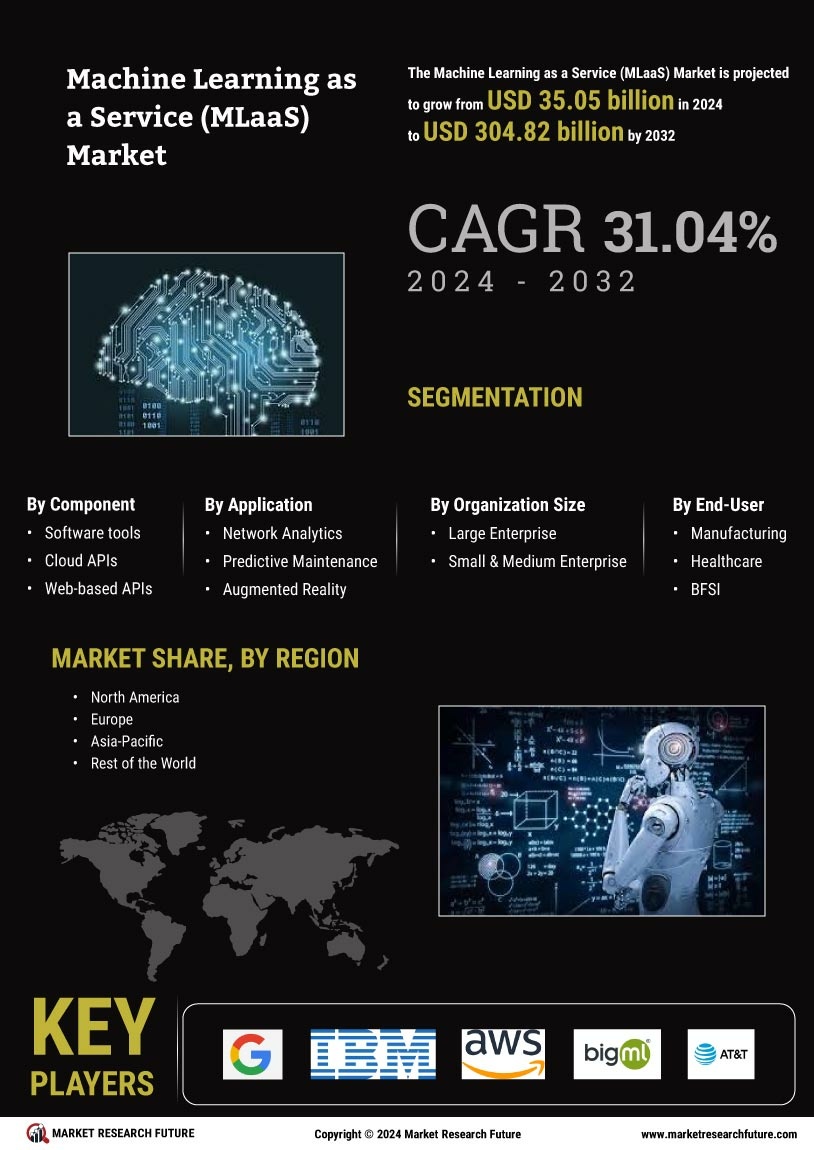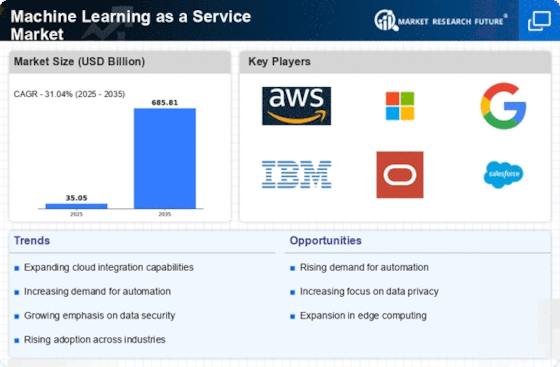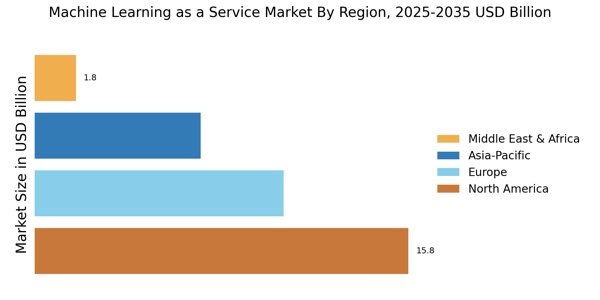Rising Demand for Predictive Analytics
The Machine Learning as a Service Market is experiencing a notable surge in demand for predictive analytics. Organizations across various sectors are increasingly recognizing the value of data-driven decision-making. This trend is evidenced by a projected growth rate of approximately 40% in the adoption of predictive analytics solutions over the next few years. Companies are leveraging machine learning algorithms to analyze historical data and forecast future trends, thereby enhancing operational efficiency and customer satisfaction. As businesses strive to remain competitive, the integration of predictive analytics into their strategies becomes essential. This growing reliance on data insights is likely to propel the Machine Learning as a Service Market forward, as more enterprises seek to harness the power of machine learning to drive innovation and improve outcomes.
Emergence of Edge Computing Technologies
The Machine Learning as a Service Market is being influenced by the emergence of edge computing technologies. As organizations seek to process data closer to the source, edge computing is becoming increasingly relevant. This technology allows for real-time data analysis and decision-making, which is particularly beneficial for applications in IoT and smart devices. The integration of machine learning with edge computing is expected to enhance the performance and efficiency of various applications. Market analysts predict that the edge computing market will grow significantly, potentially reaching $43 billion by 2027. This growth is likely to create new opportunities for the Machine Learning as a Service Market, as businesses look to implement machine learning solutions that can operate effectively at the edge.
Expansion of Industry-Specific Solutions
The Machine Learning as a Service Market is witnessing an expansion of industry-specific solutions tailored to meet the unique needs of various sectors. Industries such as healthcare, finance, and retail are increasingly adopting machine learning services to address specific challenges. For instance, in healthcare, machine learning algorithms are being utilized for patient diagnosis and treatment recommendations, while in finance, they are employed for fraud detection and risk assessment. This trend is expected to contribute to a compound annual growth rate of around 35% in the Machine Learning as a Service Market. As organizations seek customized solutions that align with their operational requirements, the demand for specialized machine learning services is likely to grow, further driving market expansion.
Growing Need for Automation in Business Processes
The Machine Learning as a Service Market is driven by the growing need for automation in business processes. Organizations are increasingly adopting machine learning solutions to streamline operations, reduce costs, and enhance productivity. Automation powered by machine learning enables businesses to analyze vast amounts of data quickly and make informed decisions without human intervention. This trend is particularly evident in sectors such as manufacturing and logistics, where efficiency is paramount. The market for automation solutions is expected to grow at a compound annual growth rate of approximately 30% over the next few years. As companies continue to seek ways to optimize their operations, the demand for machine learning services is likely to rise, further propelling the Machine Learning as a Service Market.
Increased Investment in AI Research and Development
The Machine Learning as a Service Market is benefiting from increased investment in artificial intelligence research and development. Governments and private entities are allocating substantial resources to advance machine learning technologies. This influx of funding is fostering innovation and accelerating the development of new algorithms and applications. According to recent estimates, global investments in AI research are projected to exceed $100 billion by 2026. Such financial backing is likely to enhance the capabilities of machine learning services, making them more accessible and effective for businesses. As organizations seek to leverage cutting-edge technologies, the Machine Learning as a Service Market stands to gain significantly from these advancements, potentially leading to a more competitive landscape.

















